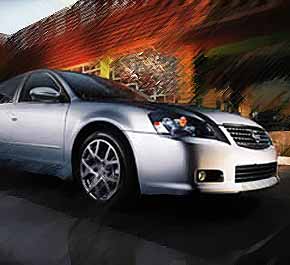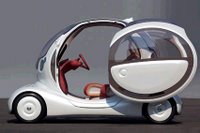Nissan Pushes the Plug

Here is another very encouraging development
Nissan to end Toyota hybrid tie-upThe Yomiuri Shimbun
Nissan Motor Co. will develop a new hybrid vehicle technology on its own, which would end a joint agreement with Toyota Motor Corp., sources said Friday.
The independently produced low-emission and fuel-efficient models will be released on 2010, the sources said.
In the wake of rising oil prices, demand for hybrid models has grown rapidly, leading Nissan to reconsider its previous stance of cooperating with Toyota on hybrid developments, the sources said.
The new compact car models will be equipped with a lithium-ion battery system and include a plug-in hybrid vehicle that can be recharged at home.
Compared with nickel-hydrogen batteries, which Toyota and Honda Motor Co. have used, the lithium-ion battery has more capacity and can be recharged more quickly.
(clip)
Nissan had not embarked on full-scale mass production of hybrid cars since it wanted to wait and see which types of low-emission cars would come to dominate the market. The maker has released only hybrid minivans on a limited scale, but as hybrid car sales by Toyota and Honda have grown in Japan and the United States, Nissan decided it would lose market share unless it entered the market with its own models.
Toyota initially considered the joint venture as the best way to promote the use of hybrid vehicles, going as far as to provide its systems to a rival to help hybrid models become more mainstream.
With Nissan showing a serious intent to mass-produce hybrid cars on its own, competition among carmakers over developing low-emission vehicles likely will intensify. "
With this announcement along with the 3 billion dollar announcement by Richard Branson to fund solutions to climate change through the Clinton Initiative, the Plug-In strategy continues to gain support nationally and throughout the world.
Become a Partner today.
Sign the On Line Petition
more news
HOME




